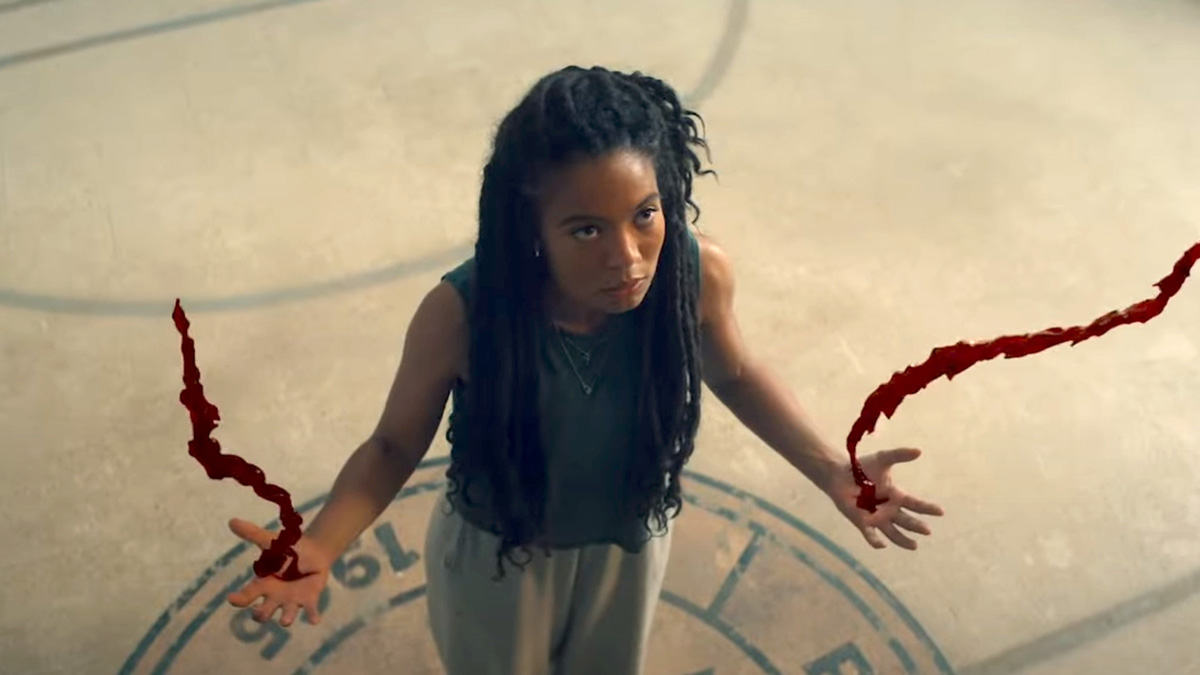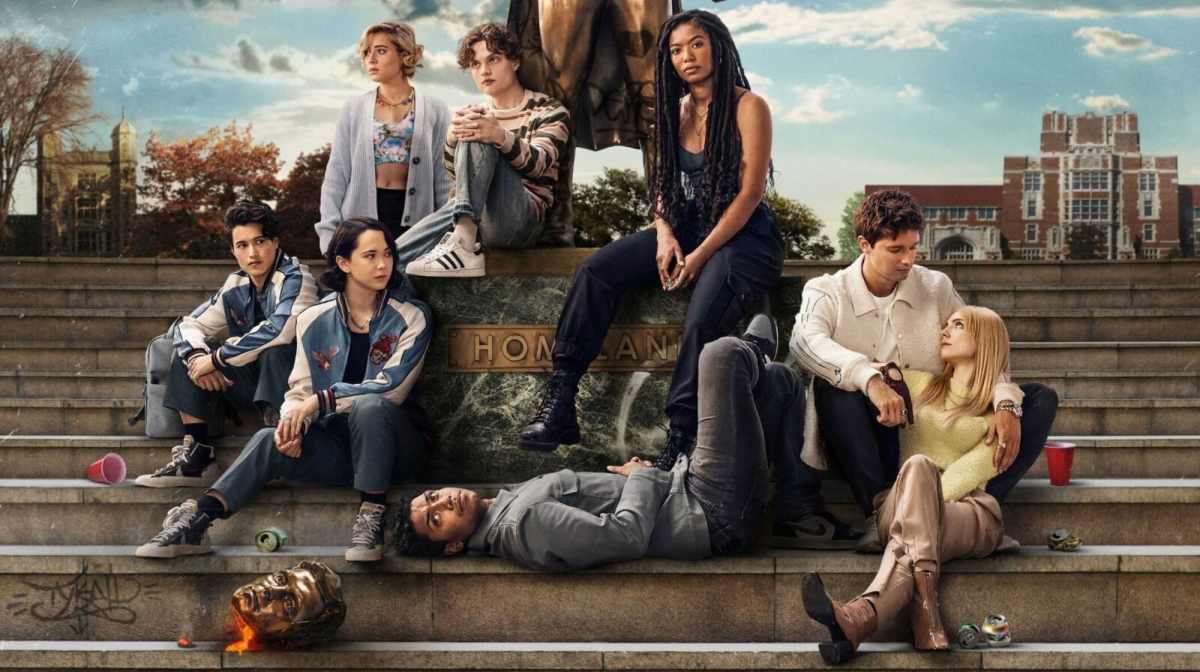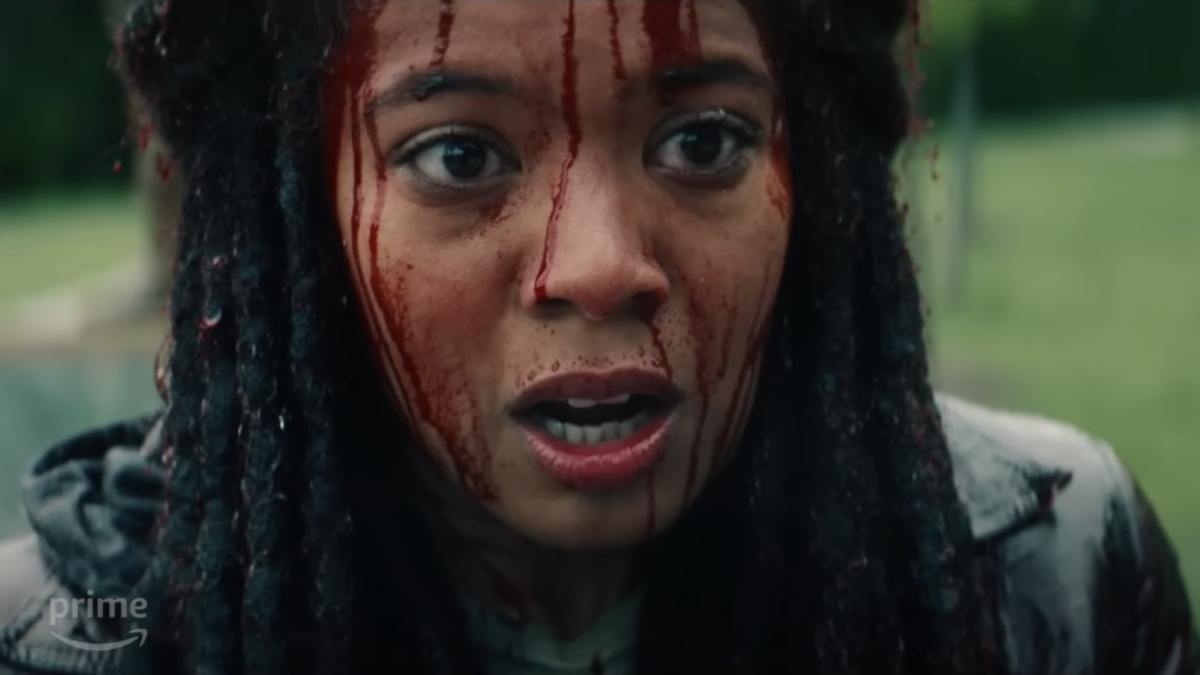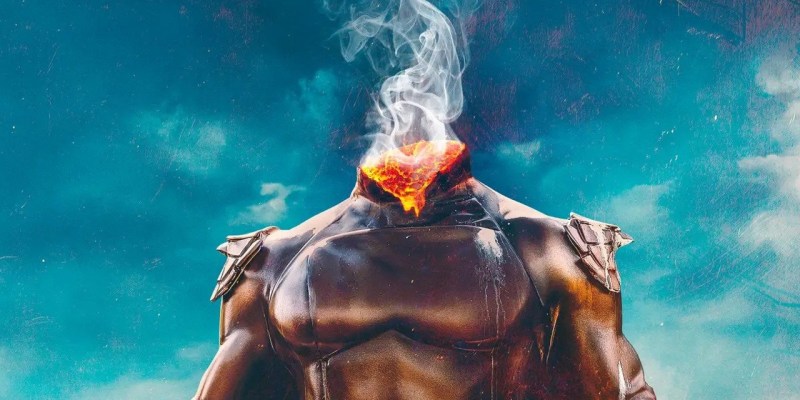This review and discussion of the first six episodes of The Boys spin-off Gen V, streaming on Amazon Prime, contains minimal spoilers.
Gen V is a perfectly serviceable spin-off for The Boys, even if it feels decidedly more earnest than its satirical older sibling.
Franchises are the cornerstone of the modern multimedia landscape, and it is no secret that streaming companies that don’t have the luxury of a library of legacy brands have been eagerly trying to build their own mega-franchises. Amazon has been particularly enthusiastic in its pursuit of franchisable property, with Jeff Bezos reportedly tasking his underlings to “bring [him] Game of Thrones.” This explains expensive intellectual property investments like The Lord of the Rings: The Rings of Power or Citadel.
While some of the streaming service’s other efforts to launch expansive shared universes have struggled to gain traction, The Boys has been a massive success. While streaming ratings are opaque, according to Nielsen, The Boys outperformed not only The Rings of Power, but all of the Disney+ Marvel and Star Wars streaming shows released in 2022. It makes sense for the service to build outwards from The Boys, something that they already attempted the animated Diabolical shorts.
More than that, The Boys seems designed for this sort of brand expansion. It is a superhero show. To date, the most successful shared universe in popular culture remains the Marvel Cinematic Universe, providing a viable model to follow. Even outside of that vast multimedia franchise, superheroes have been crossing over and spinning off for decades in the source comic books. If any Prime Video show was going to sustain a larger shared universe, The Boys was the most likely candidate.
Indeed, Gen V follows the classic spin-off template of the “college years” show. To be clear, the show unfolds in parallel with the upcoming fourth season of The Boys. There are even a few teasers about upcoming Boys plotlines tucked away in the background of Gen V for eagle-eyed viewers. However, the show follows a largely new cast attending the prestigious Godolkin University, effectively a third-level education institution for the “supes” run by Vought International.

Like its parent series, Gen V is a loose adaptation of writer Garth Ennis and artist Darick Robertson’s comic, The Boys. In broad terms, it draws from the “We Gotta Go Now” arc, which focuses on mysterious millionaire John Godolkin, who oversees his own sub-franchise of superheroes that includes the G-Men and G-Force among others. If The Boys is an obvious riff on archetypal superhero teams like the Justice League or the Avengers, then Gen V is very much drawing from the X-Men.
Over the course of the six episodes screened for press, the show doesn’t hide its influences. Even the title can be read as an allusion to a cult 1990s X-Men comic. Polarity’s (Sean Patrick Thomas) metal-bending powers evoke those of Magneto. Cate Dunlap (Maddie Phillips) is styled after, and shares the powerset of, Emma Frost. Even minor characters like Rufus (Alexander Calvert) seem modeled and written after classic X-Men characters like Empath.
In those first six episodes there are several scenes playing on familiar and archetypal X-Men scenes from both the comics and the cinematic adaptations. Marie Moreau’s (Jaz Sinclair) first experience with her “blood bending” powers recalls the introduction of Rogue (Anna Paquin) in X-Men. When Dean Indira Shetty (Shelley Conn) visits the Dunlap family, it recalls similar visits by Charles Xavier (Patrick Stewart, James McAvoy) in X-Men III: The Last Stand and Dark Phoenix.
As that premise suggests, Gen V largely focuses on a group of teenage superheroes attending a special school, who very quickly discover that everything is not as it seems. In particular, the seemingly benign mentor figure Richard “Brink” Brinkerhoff (Clancy Brown) might hold some dark secrets of his own. Over the course of the season, this upcoming generation of superheroes forge an unlikely bond as they are forced to fend for themselves.
Gen V has an interesting relationship to The Boys. The first six episodes of Gen V are saturated with cameos, references, and callbacks. It’s very clear that the production team want the audience to understand that this show occupies the same space and time as its elder sibling. There has been no expense spared. To the credit of the cast and crew, these cameos rarely overwhelm the spin-off’s narrative. These could be intrusive, but they are handled remarkably well.
Established heroes are treated as celebrities in-universe, so it makes sense for their appearances to exert a certain gravity. When credited regulars from The Boys pop up in Gen V, it is no more or less distracting than when Charlize Theron or Seth Rogen cameoed on The Boys. It’s a deft piece of franchise work, one that takes advantage of the internal logic of The Boys. However, it also suggests a tension that is never really resolved in the first six episodes of the season.

The Boys is a wry and cynical piece of work. There is an argument that its cynicism allows the show to have its cake and eat it, that its ability to present itself as bleak and ironic commentary on contemporary culture allows it to indulge in the very trends that it critiques. After all, there were famously fans who took the show entirely at face value and were horrified to discover that Homelander (Antony Starr) was not the hero of the piece.
There is perhaps an irony in trying to build out a massive superhero franchise from The Boys — a show that is about a literally monstrous superhero franchise. Sure, the fictional Vought International is a cartoonishly evil corporation, but it’s not as though accounts of Amazon’s labor practices (or even social media behavior) are that far removed from the horrors within the show. The Boys is cynical about politics and about celebrities, but it’s also cynical about superhero franchises.
That’s a tough balance to strike on becoming a superhero franchise. This isn’t to suggest that Gen V pulls its punches, at least in terms of graphic content. Gen V can be just as visceral and gnarly as The Boys. The six previewed episodes will air over four weeks, and each of those four blocks of programming contains at least one “wow” moment designed to go viral, akin to “Herogasm” or “the Termite Scene” from The Boys. The show is inventive and fun, and always looks expensive.
However, Gen V still feels somewhat safer than The Boys. Part of what made The Boys so compelling was that its primary cast included complex and truly reprehensible characters. Obviously, that included figures like Homelander, effectively the show’s antagonist. However, while characters like The Deep (Chace Crawford) and A-Train (Jessie T. Usher) were gradually humanized over the show’s run, they started out as largely unsympathetic.
On The Boys, even heroic characters like Billy Butcher (Karl Urban) and Hughie Campbell (Jack Quaid) could be flawed and selfish, motivated by self-interest and petty grievance ahead of the greater good. The show stood apart from so many modern superhero films and series, because it was willing to interrogate the power fantasy that informs so much of the genre. These were complicated and multifaceted characters, and the audience was allowed to make up their own mind about them.

In contrast, one of the big issues with Gen V is that its characters lack those rough edges. They all have their hangups and their insecurities, but they are all – in their own way – fundamentally decent people trying to do the right thing. Sure, they mess up. They make bad decisions. However, Gen V works very hard to ensure that its characters are neatly delineated into heroes and villains. There’s no ambiguity between the two, which is what made The Boys so compelling.
In some ways, this is a logical result of shifting from The Avengers to the X-Men as the primary point of reference. It’s easier to be cynical about “earth’s mightiest heroes” than it is about a bunch of teenagers “feared and hated by a world they have sworn to protect.” While The Boys asks the audience to be inherently wary of any person who seeks to exert power over another, Gen V seems more concerned about those who would covet that power.
It may also be an attempt to shift the show towards the young adult dramas that are popular on services like the CW, like Arrow or Riverdale. Whereas one might expect a spin-off to add some shading or complexity to the original series, Gen V sands down the more interesting aspects of The Boys. The result is a show that is a little smoother and easier to digest. It still has things to say, particularly about college culture, but it doesn’t feel as barbed as The Boys.
To be clear, this isn’t a huge problem. As with The Boys, there is a clear and obvious affection for (and understanding of) the superhero genre running through Gen V. Indeed, Gen V seems to be running through a decidedly more conventional and archetypal superhero story than the subversive season-long arcs that play out on The Boys. There is something to be said for watching a charming cast on a well-produced show, hitting all of their marks. Any professor would be impressed at the efficiency.
Still, watching Gen V, it’s hard not to feel like something has been lost in this attempt to transform The Boys into a more conventional superhero franchise. Based on the first six episodes of the season, this creative team can do that with considerable skill and grace. However, having watched The Boys, it can feel just a little bit remedial.
